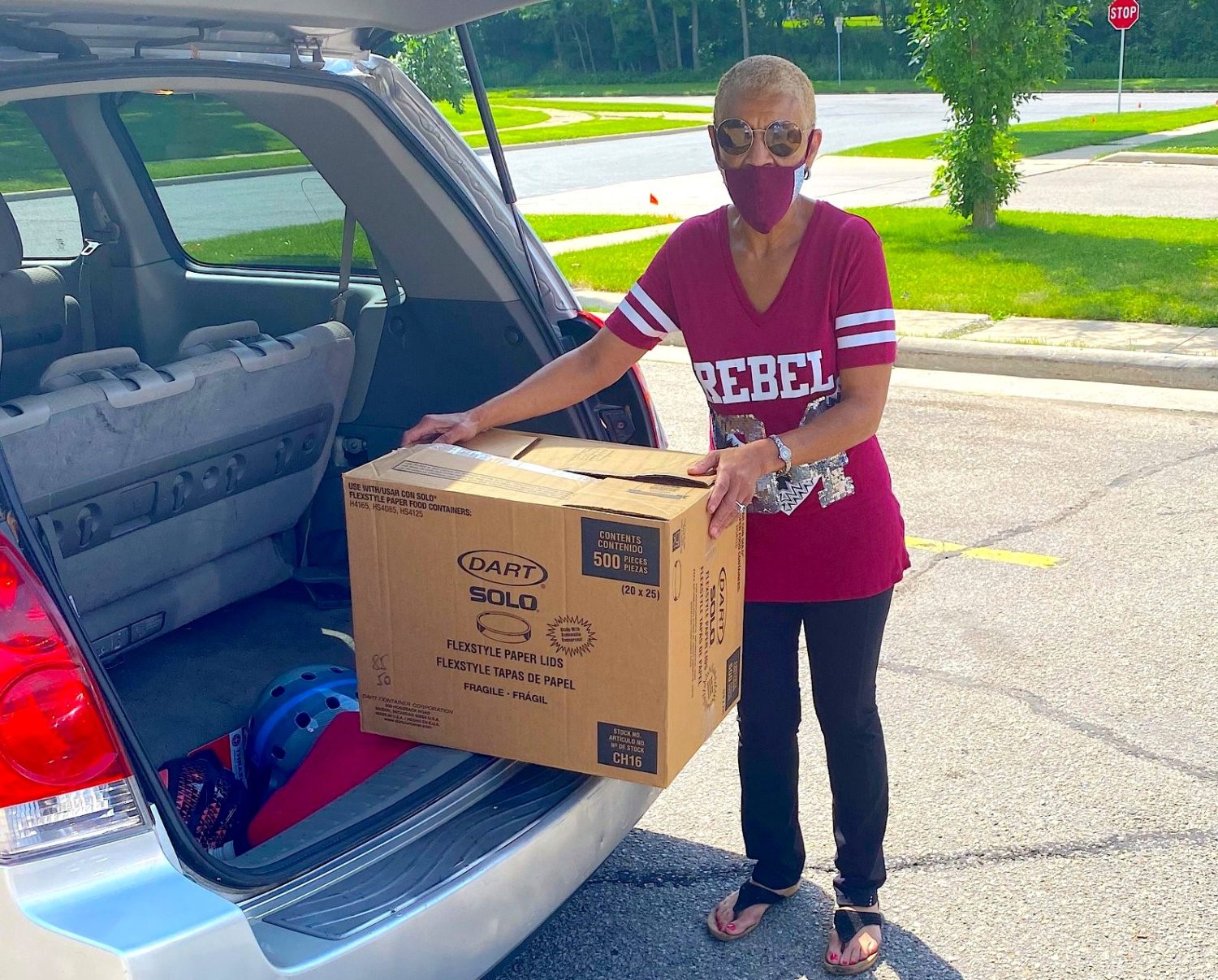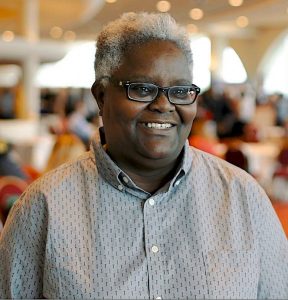
Collaboration for Good has launched a partnership with the Cook It Forward crew, a collaboration between local restaurants and local nonprofits to create an end-to-end distribution network to tackle food insecurity in Madison.
The need for programs like Cook It Forward has been increasing during the coronavirus pandemic. On Tuesday and on Friday of last week, the new partnership served 240 meals each day to 105 families (480 meals to 210 families total) and they plan to do that every Tuesday and Friday moving forward, which they have designated as their distribution days. The number of people served will increase next week, as more restaurants are added.
“There is a collaborative of 18 restaurants that will eventually be participating in this project and they wanted a safe way to reopen during COVID so they could keep their employees employed but also serve the community in some ways,” Alnisa Allgood, the founder and executive director of Collaboration for Good, tells Madison365. “It just happens that this is one of those ways allows them to open safely where they can provide food for the food insecure without having to totally reopen their restaurant where their employees and customers might get sick.”
Collaboration for Good, Inc. is a nonprofit working to “grow and enhance the region’s capacity for social good by providing targeted capacity building programs and opportunities to the social good sector — nonprofits, public organizations and institutions, community leaders and social entrepreneurs.”
Cook It Forward was created by Francesca Hong, co-owner of Morris Ramen, and Merchant managing partners Joshua Berkson and Patrick Sweeney. The initiative helps support food insecure Madisonians as well as independently owned restaurants and their ecosystems which includes farmers, distributors, restaurant employees, delivery drivers, and their employees.

“We already had a good idea of the fact that there was this community of people out there that food wasn’t necessarily getting to unless they ended up talking to one of these Black service providers,” Allgood says. “So when Cook It Forward, Patrick and Josh and Francesca, started speaking to me, I was like, ‘I love the idea of this project, but you can’t stop the food at the distribution centers. In many cases, the distributions centers are getting food and donations but it’s not getting out to the people.’”
There are instances where people cannot make it to the distribution sites – like mothers with small children who have no car or elderly people who have limited physical mobility, no car, and various medical vulnerabilities.
“We knew people who were already doing the work of distribution and they were willing to add more people to it,” Allgood says. “It will also even be something where we could potentially give the city a better idea of whether their food insecurity maps are still accurate.
“If the school district says, ‘We have 40 families that we know aren’t getting food and we’ve spoken to all of them and as long as we maintain these levels of privacy, we would love for you guys to deliver food for us.’ We can do things like that and that’s ultimately where we want to get to,” she adds. “We want to get to the point where we can find additional people who are food insecure and lack access and mobility for that and get them what they need.”
Independent and locally-owned restaurants involved in “Cook It Forward” include Ancora Coffee, Banzo, Casetta, Forage, Gates & Brovi, Graze, Harvest, Heritage Tavern, L’Etoile, La Kitchenette, La Taguara, Lucille, Madtown Food Services, Marie’s Soul Food, Marigold, Merchant, Morris Ramen, Pasture & Plenty, Sardine, The Old Fashioned, and Tapatios.

Many different Madison-area non-profit organizations are involved in the work including Freedom Inc, EOTO, LLC, Foster Of Dane County, Kennedy Heights Community Council, Fountain of Life Covenant Church, Boys & Girls Clubs of Dane County, Urban Triage, Badger Rock Neighborhood Center and Rooted. Each week, the list of last-minute service providers will continue to grow, Allgood says..
“What I’m trying to do for last-mile service providers is up the number of people that they can deliver food to,” Allgood says.
“One of the great things about having these last-mile service providers in the mix is that they can deliver more than food,” Allgood adds. “Like if somebody needed a gift card to pay their electric bill or something like that, they could actually do those services, as well. They could drop off personal essentials at the same time they are dropping off food. We wouldn’t put any restrictions on that like other services might do.”
The capacity for the new collaboration will continue to grow with each week and will eventually produce 2,000 meals twice weekly and potentially serve more families as they add restaurants and distribution sites.
“With the pilot, we’ve basically started up with three restaurants, four distribution sites and four last-mile providers,” Allgood says. “These are the people who I’ve been working with quite a bit already so we can communicate and talk about what has worked and what hasn’t worked.”
In order to grow, they will need more help from the community through donations and sponsorships. Community members can donate here.
“The need and the response have blown us away so far,” Allgood says. “Donate if you can … but you can help by spreading the word. If you know somebody who is food insecure and lacks accessibility and mobility to get out to food, they can contact me.”



